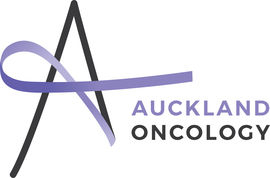Central Auckland, East Auckland, North Auckland, South Auckland, West Auckland > Private Hospitals & Specialists >
Auckland Oncology
Private Service, Oncology
Today
8:00 AM to 5:00 PM.
Description
Welcome to Auckland Oncology (formerly known as Oncology 161) where the patient comes first.
Auckland Oncology was established by Dr Vernon Harvey and Dr Paul Thompson as Oncology 161 in 1999 in the comfortable ambience of a gracious old villa, sympathetically converted to accommodate a busy, modern medical practice. Through the years, the practice has expanded and it now comprises five medical oncologists (Dr Catherine Han, Dr Dragan Damianovich, Dr Rita Sasidharan, Prof. Mark McKeage and Dr Sheridan Wilson) and two haematologists (Dr Rajeev Rajagopal and Dr James Liang), each with subspecialty expertise. They are supported by seven experienced and dedicated specialist oncology/haematology nurses, pharmacist, as well as administrative support staff who are passionate about their work. The founding oncologists have recently retired after providing over 50 years of tremendous service in medicine.
The vision of Auckland Oncology team is to provide the very best information and most up to date treatment available anywhere. They aim to make consultation a comprehensive, but easy to understand discussion on the nature of the patient’s cancer, what it means and the options for managing it. Treatment is individualised and may include chemotherapy, targeted therapy, immunotherapy, hormone therapy, biotherapy, and/or combination of these. They also offer iron infusions and blood product transfusions.
Auckland Oncology takes pride in providing the highest standard of care for their patients with a patient centred state of the art treatment in a caring and comfortable environment.
Consultants
-
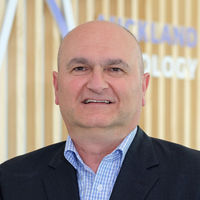
Dr Dragan Damianovich
Medical Oncologist - Gastrointestinal, Lung, Neuroendocrine, Brain Cancers
-
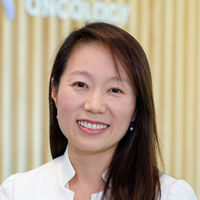
Dr Catherine Han
Medical Oncologist - Gastrointestinal, Breast, Head & Neck and Brain cancers, and ocular melanoma.
-
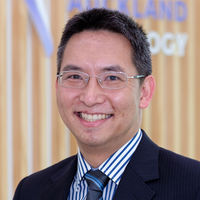
Dr James Liang
Haematologist - malignant and non-malignant conditions
-
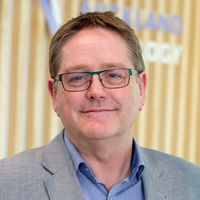
Prof Mark McKeage
Medical Oncologist - Head & Neck, and Lung Cancers
-
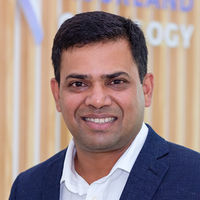
Dr Rajeev Rajagopal
Haematologist - malignant and non-malignant conditions
-
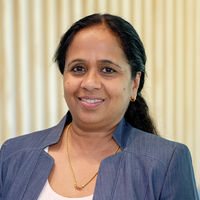
Dr Rita Sasidharan
Medical Oncologist - Breast, Gastrointestinal, Prostate & Lung Cancers
-

Dr Sheridan Wilson
Medical Oncologist - Breast cancer
Referral Expectations
They will usually receive a referral from a GP or specialist, but self-referrals are also accepted if appropriate. One of their staff will then contact the patient and make an appointment for an initial consultation with the specialist. Before this assessment, they will send an email to the patient asking for personal details, information about his or her cancer, past medical history, current medications, drug allergies etc.
Auckland Oncology oncologists are happy to receive referrals for most types of adult solid tumours. If the referral is for a type of tumour they believe may be more appropriately dealt with by another specialist they will make that suggestion.
For more information, visit http://www.aucklandoncology.co.nz/patient-information
Hours
8:00 AM to 5:00 PM.
| Mon – Fri | 8:00 AM – 5:00 PM |
|---|
Each oncologist provides 24/7 on-call service for their own patients.
Procedures / Treatments
Cancer is diagnosed with a number of tests but usually a biopsy is needed. This is where a sample of the lesion/growth is sent to the laboratory to be examined under the microscope. This can tell the doctors exactly what type of cancer is present and guides them to what sort of treatment might be best. Samples can be obtained with different techniques: Fine needle aspirate (FNA): a small needle is inserted into a lump and some cells are sucked out and sent to the laboratory. If the lump is on the surface of your body the doctor will do this in the consultation room with some local anaesthetic injected into the skin so the procedure won’t hurt. If the tumour is inside your body an FNA can still be done but it is done with guidance from a CT scanner or ultrasound so the doctor can see where the needle needs to go. This is done by a specialist radiologist (a doctor trained in the speciality of x-rays). Biopsy: a small piece of a lesion is cut out and sent to the laboratory. If it is on the outside of your body this procedure is done with local anaesthetic (makes the area numb so it doesn’t hurt). Sometimes it can be done by putting tiny telescopes into areas they can’t reach to take the biopsy. Sometimes an operation is required to be sure about the diagnosis. Endoscopy: a flexible tube with a viewing lens and a fibre optic light on the end is passed through natural body orifices (openings) to view the colon (colonoscopy), stomach (gastroscopy) or lungs (bronchoscopy). Laparoscopy: similar to endoscopy, but requires a small cut (incision) to be made in the body such as the abdominal (tummy) wall. The laparoscope is then pushed through the incision to look for possible areas of cancer, which can then be biopsied. When this type of procedure is done in the chest it is called a thoracoscopy or mediastinoscopy. Other tests are often needed to establish the diagnosis and extent of a cancer. These include blood and urine tests, CT or MRI scans, ultrasounds, nuclear medicine scans. Once the diagnosis is established you will meet with various specialists to talk about what treatment options are available and the benefits and risks of those treatments as well as what the diagnosis means. It is a good idea to have a support person with you for these consultations as a lot of information is often given and it can be hard to take it all in. It is a good idea to write down a list of questions you might want to ask.
Cancer is diagnosed with a number of tests but usually a biopsy is needed. This is where a sample of the lesion/growth is sent to the laboratory to be examined under the microscope. This can tell the doctors exactly what type of cancer is present and guides them to what sort of treatment might be best. Samples can be obtained with different techniques: Fine needle aspirate (FNA): a small needle is inserted into a lump and some cells are sucked out and sent to the laboratory. If the lump is on the surface of your body the doctor will do this in the consultation room with some local anaesthetic injected into the skin so the procedure won’t hurt. If the tumour is inside your body an FNA can still be done but it is done with guidance from a CT scanner or ultrasound so the doctor can see where the needle needs to go. This is done by a specialist radiologist (a doctor trained in the speciality of x-rays). Biopsy: a small piece of a lesion is cut out and sent to the laboratory. If it is on the outside of your body this procedure is done with local anaesthetic (makes the area numb so it doesn’t hurt). Sometimes it can be done by putting tiny telescopes into areas they can’t reach to take the biopsy. Sometimes an operation is required to be sure about the diagnosis. Endoscopy: a flexible tube with a viewing lens and a fibre optic light on the end is passed through natural body orifices (openings) to view the colon (colonoscopy), stomach (gastroscopy) or lungs (bronchoscopy). Laparoscopy: similar to endoscopy, but requires a small cut (incision) to be made in the body such as the abdominal (tummy) wall. The laparoscope is then pushed through the incision to look for possible areas of cancer, which can then be biopsied. When this type of procedure is done in the chest it is called a thoracoscopy or mediastinoscopy. Other tests are often needed to establish the diagnosis and extent of a cancer. These include blood and urine tests, CT or MRI scans, ultrasounds, nuclear medicine scans. Once the diagnosis is established you will meet with various specialists to talk about what treatment options are available and the benefits and risks of those treatments as well as what the diagnosis means. It is a good idea to have a support person with you for these consultations as a lot of information is often given and it can be hard to take it all in. It is a good idea to write down a list of questions you might want to ask.
- Fine needle aspirate (FNA): a small needle is inserted into a lump and some cells are sucked out and sent to the laboratory. If the lump is on the surface of your body the doctor will do this in the consultation room with some local anaesthetic injected into the skin so the procedure won’t hurt. If the tumour is inside your body an FNA can still be done but it is done with guidance from a CT scanner or ultrasound so the doctor can see where the needle needs to go. This is done by a specialist radiologist (a doctor trained in the speciality of x-rays).
- Biopsy: a small piece of a lesion is cut out and sent to the laboratory. If it is on the outside of your body this procedure is done with local anaesthetic (makes the area numb so it doesn’t hurt). Sometimes it can be done by putting tiny telescopes into areas they can’t reach to take the biopsy. Sometimes an operation is required to be sure about the diagnosis.
- Endoscopy: a flexible tube with a viewing lens and a fibre optic light on the end is passed through natural body orifices (openings) to view the colon (colonoscopy), stomach (gastroscopy) or lungs (bronchoscopy).
- Laparoscopy: similar to endoscopy, but requires a small cut (incision) to be made in the body such as the abdominal (tummy) wall. The laparoscope is then pushed through the incision to look for possible areas of cancer, which can then be biopsied. When this type of procedure is done in the chest it is called a thoracoscopy or mediastinoscopy.
Surgery is the oldest form of treatment for cancer. Surgery offers the greatest chance for cure for many types of cancer, especially those cancers that have not yet spread to other parts of the body. People often see just a surgeon for the surgical treatment of cancer and are then referred to an oncologist if other treatments are thought to add benefit. Preparing for surgery Both you and your doctor need to prepare before surgery to make sure you have the best chance for a good outcome. For your part, this involves knowing what to expect (as much as possible) and being comfortable that the decision you’ve made is the best one for you. Knowing as much as you can about your care plan can help reduce your level of stress. Informed consent is one of the most important parts of your preparation for surgery. It is a process during which you give your written permission for your doctor to perform surgery, after you have been informed of all aspects of the treatment.
Surgery is the oldest form of treatment for cancer. Surgery offers the greatest chance for cure for many types of cancer, especially those cancers that have not yet spread to other parts of the body. People often see just a surgeon for the surgical treatment of cancer and are then referred to an oncologist if other treatments are thought to add benefit. Preparing for surgery Both you and your doctor need to prepare before surgery to make sure you have the best chance for a good outcome. For your part, this involves knowing what to expect (as much as possible) and being comfortable that the decision you’ve made is the best one for you. Knowing as much as you can about your care plan can help reduce your level of stress. Informed consent is one of the most important parts of your preparation for surgery. It is a process during which you give your written permission for your doctor to perform surgery, after you have been informed of all aspects of the treatment.
Chemotherapy is the use of medicines to kill or reduce the spread of cancer cells. Chemotherapy is given as cycles and may be given once a day, once a week or even once a month. This depends on the type of cancer and the best regimen (course) as determined by research. Chemotherapy, unlike radiation (which treats only the part of the body exposed to the radiation), treats the entire body. As a result, any cells that may have escaped from where the cancer originated are treated. A doctor who prescribes chemotherapy is known as a medical oncologist. Depending on what type of cancer you have and whether it has spread, your doctor may use chemotherapy to: Eliminate all cancer cells in your body, even when cancer is widespread Prolong your life by controlling cancer growth and spread or Relieve symptoms and improve your quality of life. Most chemotherapy drugs are given in one of the following ways: You might take a tablet or medicine orally (swallow) It may be given intravenously as an injection over a short period of time or as an infusion over a longer period of time. For these treatments you come into the Department usually for part of the day. Side effects Some people have no side effects at all from chemotherapy. Sometimes, however, chemotherapy will make you feel sick. As each type of chemotherapy has different side effects they will be discussed with you prior to starting any treatment so you know what to expect. Chemotherapy targets cells that are quickly dividing, whether it's a cancer cell or not. Therefore, some non-cancer cells that divide quickly are also damaged. The following is a list of some normal cells that divide quickly in the body and may be susceptible to the effects of chemotherapy: Cells in your hair (can cause hair loss) Cells of the skin and mouth (can cause sores in your mouth and dry skin) Cells in your stomach and intestines (can cause you to feel sick, vomit or have diarrhoea) Cells in your bone marrow. This is where your red and white blood cells are made. White blood cells fight infections, so temporarily you are very prone to these and they can become serious. Loss of red blood cells can make you anaemic and tired. There are many medicines you can take to reduce or lessen these unwanted effects of chemotherapy. In some cases, chemotherapy may be the only treatment you need. More often, it's used in conjunction with other treatments, such as surgery or radiation, to improve results. For example, you may receive: Neoadjuvant chemotherapy. The goal of neoadjuvant therapy is to reduce the size of a tumour with chemotherapy before surgery or radiation therapy. Adjuvant chemotherapy. Given after surgery or radiation, the goal of adjuvant chemotherapy is to eliminate any cancer cells that might linger in your body following earlier treatments.
Chemotherapy is the use of medicines to kill or reduce the spread of cancer cells. Chemotherapy is given as cycles and may be given once a day, once a week or even once a month. This depends on the type of cancer and the best regimen (course) as determined by research. Chemotherapy, unlike radiation (which treats only the part of the body exposed to the radiation), treats the entire body. As a result, any cells that may have escaped from where the cancer originated are treated. A doctor who prescribes chemotherapy is known as a medical oncologist. Depending on what type of cancer you have and whether it has spread, your doctor may use chemotherapy to: Eliminate all cancer cells in your body, even when cancer is widespread Prolong your life by controlling cancer growth and spread or Relieve symptoms and improve your quality of life. Most chemotherapy drugs are given in one of the following ways: You might take a tablet or medicine orally (swallow) It may be given intravenously as an injection over a short period of time or as an infusion over a longer period of time. For these treatments you come into the Department usually for part of the day. Side effects Some people have no side effects at all from chemotherapy. Sometimes, however, chemotherapy will make you feel sick. As each type of chemotherapy has different side effects they will be discussed with you prior to starting any treatment so you know what to expect. Chemotherapy targets cells that are quickly dividing, whether it's a cancer cell or not. Therefore, some non-cancer cells that divide quickly are also damaged. The following is a list of some normal cells that divide quickly in the body and may be susceptible to the effects of chemotherapy: Cells in your hair (can cause hair loss) Cells of the skin and mouth (can cause sores in your mouth and dry skin) Cells in your stomach and intestines (can cause you to feel sick, vomit or have diarrhoea) Cells in your bone marrow. This is where your red and white blood cells are made. White blood cells fight infections, so temporarily you are very prone to these and they can become serious. Loss of red blood cells can make you anaemic and tired. There are many medicines you can take to reduce or lessen these unwanted effects of chemotherapy. In some cases, chemotherapy may be the only treatment you need. More often, it's used in conjunction with other treatments, such as surgery or radiation, to improve results. For example, you may receive: Neoadjuvant chemotherapy. The goal of neoadjuvant therapy is to reduce the size of a tumour with chemotherapy before surgery or radiation therapy. Adjuvant chemotherapy. Given after surgery or radiation, the goal of adjuvant chemotherapy is to eliminate any cancer cells that might linger in your body following earlier treatments.
- Eliminate all cancer cells in your body, even when cancer is widespread
- Prolong your life by controlling cancer growth and spread or
- Relieve symptoms and improve your quality of life.
- You might take a tablet or medicine orally (swallow)
- It may be given intravenously as an injection over a short period of time or as an infusion over a longer period of time. For these treatments you come into the Department usually for part of the day.
- Cells in your hair (can cause hair loss)
- Cells of the skin and mouth (can cause sores in your mouth and dry skin)
- Cells in your stomach and intestines (can cause you to feel sick, vomit or have diarrhoea)
- Cells in your bone marrow. This is where your red and white blood cells are made. White blood cells fight infections, so temporarily you are very prone to these and they can become serious. Loss of red blood cells can make you anaemic and tired.
- Neoadjuvant chemotherapy. The goal of neoadjuvant therapy is to reduce the size of a tumour with chemotherapy before surgery or radiation therapy.
- Adjuvant chemotherapy. Given after surgery or radiation, the goal of adjuvant chemotherapy is to eliminate any cancer cells that might linger in your body following earlier treatments.
Immunotherapy is a type of biologic cancer treatment that focuses on using certain cells of your immune system to battle your cancer. It works by stimulating your immune system to kill cancer cells or marking cancer cells so your immune cells can easily find them to destroy. Immunotherapy is usually well tolerated with little or minor side effects but there is a small risk of severe immune reaction where your immune cells attack your healthy cells.
Immunotherapy is a type of biologic cancer treatment that focuses on using certain cells of your immune system to battle your cancer. It works by stimulating your immune system to kill cancer cells or marking cancer cells so your immune cells can easily find them to destroy. Immunotherapy is usually well tolerated with little or minor side effects but there is a small risk of severe immune reaction where your immune cells attack your healthy cells.
Immunotherapy is a type of biologic cancer treatment that focuses on using certain cells of your immune system to battle your cancer. It works by stimulating your immune system to kill cancer cells or marking cancer cells so your immune cells can easily find them to destroy. Immunotherapy is usually well tolerated with little or minor side effects but there is a small risk of severe immune reaction where your immune cells attack your healthy cells.
Targeted therapies involve using drugs to target specific changes in your cancer cells that drive them to grow and spread. While it is similar to chemotherapy, this treatment focuses more on targeting the specific genes or proteins found in cancer cells. This means the medication is able to recognise the difference between your healthy cells and the cancer cells. Some targeted therapies interfere with formation of new blood vessels within or around tumours to prevent a blood supply to the tumours which is necessary to grow.
Targeted therapies involve using drugs to target specific changes in your cancer cells that drive them to grow and spread. While it is similar to chemotherapy, this treatment focuses more on targeting the specific genes or proteins found in cancer cells. This means the medication is able to recognise the difference between your healthy cells and the cancer cells. Some targeted therapies interfere with formation of new blood vessels within or around tumours to prevent a blood supply to the tumours which is necessary to grow.
Targeted therapies involve using drugs to target specific changes in your cancer cells that drive them to grow and spread. While it is similar to chemotherapy, this treatment focuses more on targeting the specific genes or proteins found in cancer cells. This means the medication is able to recognise the difference between your healthy cells and the cancer cells. Some targeted therapies interfere with formation of new blood vessels within or around tumours to prevent a blood supply to the tumours which is necessary to grow.
Certain types of breast and prostate cancers are affected by hormones in the blood, which can help them grow. Endocrine therapy (also called hormonal therapy) involves taking drugs to prevent the cancer cells from accessing the hormones that help them develop.
Certain types of breast and prostate cancers are affected by hormones in the blood, which can help them grow. Endocrine therapy (also called hormonal therapy) involves taking drugs to prevent the cancer cells from accessing the hormones that help them develop.
Certain types of breast and prostate cancers are affected by hormones in the blood, which can help them grow. Endocrine therapy (also called hormonal therapy) involves taking drugs to prevent the cancer cells from accessing the hormones that help them develop.
Radiation therapy uses special equipment to deliver high doses of radiation (beam of x-rays) to cancerous tumours, to kill or damage them so they cannot grow or spread. Normal cells may be affected by radiation, but most appear to recover fully from the effects of the treatment. Radiation therapy affects only the tumour and the surrounding area. Some cancers are very sensitive to radiation but not all. Radiotherapy is usually given in small doses over a period of time; this is known as a course. A doctor who manages your radiotherapy is called a radiation oncologist. Auckland Oncology does not offer Radiotherapy and will refer patients who may require this treatment.
Radiation therapy uses special equipment to deliver high doses of radiation (beam of x-rays) to cancerous tumours, to kill or damage them so they cannot grow or spread. Normal cells may be affected by radiation, but most appear to recover fully from the effects of the treatment. Radiation therapy affects only the tumour and the surrounding area. Some cancers are very sensitive to radiation but not all. Radiotherapy is usually given in small doses over a period of time; this is known as a course. A doctor who manages your radiotherapy is called a radiation oncologist. Auckland Oncology does not offer Radiotherapy and will refer patients who may require this treatment.
It is very common for people with cancer to want to try other non-medical treatments such as diet or alternative/complementary medicines offered by other practitioners. It is helpful for your oncology team to know what other therapies you might be taking as sometimes there can be interactions with their treatment.
It is very common for people with cancer to want to try other non-medical treatments such as diet or alternative/complementary medicines offered by other practitioners. It is helpful for your oncology team to know what other therapies you might be taking as sometimes there can be interactions with their treatment.
Refreshments
Light refreshments will be provided during your treatment.
Public Transport
The Auckland Transport website is a good resource to plan your public transport options.
Parking
Parking is available at the front of the clinic and under the building. Additional parking is available, please contact reception.
Website
Contact Details
125 Remuera Road, Remuera, Auckland
Central Auckland
8:00 AM to 5:00 PM.
-
Phone
(09) 524 0125
-
Fax
(09) 524 5125
Healthlink EDI
auckonco
Email
Website
Consultation by appointment only.
125 Remuera Road
Remuera
Auckland 1050
Street Address
125 Remuera Road
Remuera
Auckland 1050
Postal Address
PO Box 128116
Remuera
Auckland 1541
Was this page helpful?
This page was last updated at 10:18AM on June 9, 2023. This information is reviewed and edited by Auckland Oncology.

